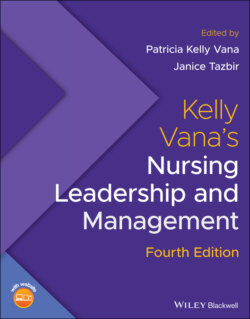Читать книгу Kelly Vana's Nursing Leadership and Management - Группа авторов - Страница 136
Institute of Medicine Health Care Reports
ОглавлениеThe IOM, established in 1970 under the charter of the National Academy of Sciences, provides independent, objective, evidence‐based advice to policymakers, health professionals, the private sector, and the public. In 1996, the IOM launched a concerted, ongoing effort focused on assessing and improving the nation's quality of care. The Ensuring Quality Cancer Care Report (1999) documented the wide gulf that exists between ideal cancer care and the reality many Americans with cancer experience.
Other reports released by the IOM on the quality of health care include:
To Err is Human; Building A Safer Health System (1999);
Crossing the Quality Chasm: A New Health System for the Twenty‐first Century (2001);
Strategies for Addressing the Evolving Nursing Crisis (2002);
Patient Safety: Achieving a New Standard for Care (2003);
Keeping Patients Safe: Transforming the Work Environment of Nurses (2003);
Health Professions Education: A Bridge to Quality (2003);
Priority Areas for National Action: Transforming Health Care Quality (2003);
Performance Measurement: Accelerating Improvement (2005);
Preventing Medication Errors (2006); and
The Future of Nursing: Leading Change, Advancing Health (2010).
A complete listing of IOM Reports is available at www.iom.edu/Reports.aspx
Eight principles are integral to health care reform, as envisioned by the IOM (2008). These eight principles are:
Accountability
Efficiency
Objectivity
Scientific rigor
Consistency
Feasibility
Responsiveness
Transparency
These principles are consistent with a professional nursing agenda, which states that all persons are entitled to affordable, quality health care services (American Nurses Association (ANA), 2010). The Quality Chasm report described broader quality issues, defined six aims, and highlighted ten rules for care delivery redesign (Table 2.7) (IOM, 2001).
